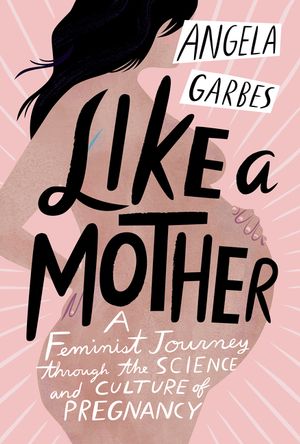The Counselor's Bookshelf:
|
 Like a Mother: A feminist journey through the science and culture of pregnancy might not seem like an obvious book for a mental health themed blog. Or, on the other hand, maybe it does? Maybe it makes a lot of sense. We talk about postpartum depression like it's a discrete thing that happens to some people (yes, men get it too) after a new baby is born. What about the idea that pregnancy, with all of its physiological and psychological effects on the mother, and on the entire family unit, actually causes changes and challenges that exist on a spectrum continually evolving over time. Existential and often paradoxical questions about what it means to bring new life into the world, realities of physical changes in the body, a whole range of psychological experiences (often including many mood states, not just depression) as well as cultural expectations all play into each person's unique experience of growing a family. Also, we need to take into account the harsh truth that pregnancy, birth, and life after can be dramatically different for those who have money and access to resource than for those who are poor, live in under-served communities, and, the statistics on this are clear, are not white. Increasingly we are talking about gender non-binary and transgender people having children in a medical system that does not always understand their needs. All of this will have much to bear on the mental health of the entire family. After hearing an interview on Fresh Air with Angela Garbes, I decided to buy the book. For some reason, perhaps the tone of the interview, I thought it would be a light and intellectually stimulating read. In the end I actually found reading this book to be both inspiring and fascinating, and also hard. Everything she covers from the dramatic, and sometimes long lasting, physical changes to the mother's body, to the scientific community's inattention and relative lack of funding for this critical aspect of women's health, is eye-opening and intense. She doesn't sugar coat anything, and thank goodness, because what we are left with is a deeply honest look at what creating new life really means. So much of mental health work is about giving people a space to be witnessed and held while sharing the good, the bad, and the ugly of human life. It is resources like this book that help us feel less alone when things get weird (or slimy, oozy, sticky and stinky). The following excerpt is a taste of Garber's writing. It shows how fairly simple and straightforward research helps us identify small interventions that can make huge differences in the lives of new mothers. If you like what you read, give the whole book a go. It will open your eyes, soften your heart, and hopefully help you, and your loved ones, feel less alone in the gritty, visceral, emotional and very human task of giving birth. In the early 1980s, after fifteen years of working in labor and childbirth, [Penny] Simkin, a physical therapist by training, was considering a career shift. Before doing so, though, she wanted to know if her work supporting women in labor had a lasting impact on these mothers, or if they forgot the details of their births over the years. She had no formal research experience but, inspired by a research paper written by a nurse at the University of Washington on women's experiences with miscarriage, she decided to conduct her own study. She invited twenty women who she had assisted early in her career- and whose handwritten birth stories she still had- to recount their births after many years.
"I compared their stories, and they were so consistent. I was astounded," said Simkin. "Women don't forget." Along with telling their stories, Simkin asked the mothers to rate, on a scale of 1 to 10, how satisfied they felt with their births. A proponent of unmedicated childbirth, she expected the mothers who had, in her words, "easy, natural births" to be more satisfied than those who had "tougher, longer" labors with medical interventions. "But it didn't work out that way," she said. "Some of the people that had easy, fast labors were very unhappy. Others had long, painful labors, and yet they felt really good about it." Not only were some of the women with difficult births content, they also had fond, vivid memories. One woman who had severe back pain throughout her entire labor spoke at length about the nurse who stayed on after her shift was done to be there for the delivery and how, after she gave birth, the same nurse gave her a back rub. More than fifteen years later, the mother described the details of looking out the window- the sun, the clouds, the way objects moved through the sky- as the nurse tended to her. Simkin realized then that it was not the physical act of birth itself that held the most potent memories for women, but the way they were cared for before, during and after birth.
0 Comments
Leave a Reply. |
The Counselor's Bookshelf:Sharing the books, articles, podcasts, and other resources I'm drawing from personally, and in my work as a counselor. Archives
October 2019
Categories
All
|
Proudly powered by Weebly
 RSS Feed
RSS Feed